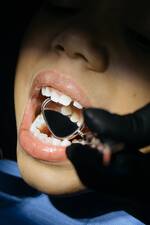Author Interviews, Breast Cancer, Cancer Research, JAMA, MRSA, Radiation Therapy / 06.05.2023
Bacterial Decolonization Reduced Radiation Dermatitis in Patients with Nasal Staphylococcus aureus
MedicalResearch.com Interview with:
Beth McLellan, M.D.
Chief, Division of Dermatology
Montefiore Medical Center
Albert Einstein College of Medicine
MedicalResearch.com: What is the background for this study? How is the decolonization initiated and maintained?
Response: We were interested in exploring whether bacteria on the skin plays a role in radiation dermatitis like it does in other skin diseases that cause a breakdown in the skin barrier. We used a bacterial decolonization regimen that includes chlorhexidine 2% cleanser for the body and mupirocin 2% ointment to the inside of the nose for 5 consecutive days before starting radiation therapy and repeated for an additional 5 days every other week for the duration of radiation.
(more…)



